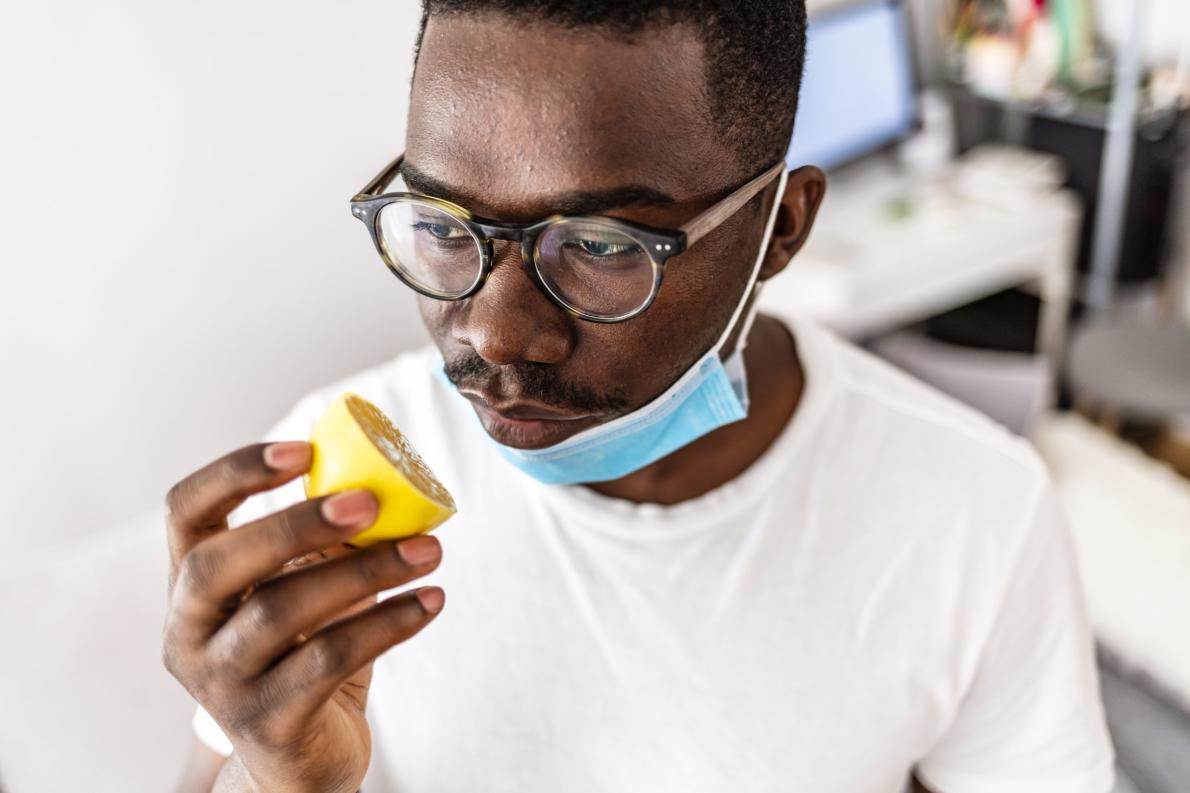Researchers Find Potential Cause for Long-term Loss of Smell in Patients Post-COVID-19


For some patients who have had COVID-19, one symptom persists long after their recovery from the virus: a loss of smell. In fact, more than one out of four patients report having long-lasting olfactory loss.
Little is understood about why anosmia, or a lack of smell, occurs for some patients and not others post-COVID-19.
Recent research by investigators at Duke, Harvard, and University of California San Diego, however, suggests that inflammation from immune T cells may play a role in long-lasting anosmia for recovered COVID-19 patients.
First, Find What’s Broken
Bradley Goldstein, MD, PhD, Vice Chair of Research for the Department of Head and Neck Surgery & Communication Sciences, says that the research team examined biopsies of olfactory tissue from consenting patients who had recovered from COVID-19.
Using single cell RNA sequencing, the team looked at the gene expression profile of individual cells in the biopsies to see how they were functioning. Their analysis included studying olfactory sustentacular cells, which are the cells that are infected by the SARS-CoV-2 virus.
“What our group is trying to work on is understanding damage and repair,” says Dr. Goldstein. “It’s really hard to know how to fix something if you don’t understand what’s broken. What we’ve learned is that there are specific immune cells that remain after infection and are potentially causing damage in these post-COVID-19 patients with smell loss.”

“Our work is really looking at the sense of smell, how it works, and why it sometimes goes wrong."
Next, Find Ways to Repair
Despite the major advances in olfactory research in recent years, our sense of smell is one of the more difficult ones to understand, says David Jang, MD, Chief of the Division of Rhinology and Skull Base Surgery.
“Our work is really looking at the sense of smell, how it works, and why it sometimes goes wrong,” says Dr. Jang. The collaboration between sinus surgeons, rhinologists, basic scientists, and clinical scientists makes Duke an ideal place to conduct this kind of research, adds Dr. Goldstein.
Understanding what causes anosmia and parosmia (a condition of experiencing distorted odor perceptions) is the first step in finding treatment options. Currently, no treatments are available for patients who experience these long-lasting symptoms after having COVID-19.
This research may open the door for potential treatment options in the future.
To read more about the team’s research, titled “Persistent post-COVID-19 smell loss is associated with inflammatory infiltration and altered olfactory epithelial gene expression,” visit bioRxiv.